Alexandre Strokanov is a Professor of History and Global Studies on the VTSU Lyndon and Johnson campuses.
Where did you grow up?
Well, I grew up in a town called Tchaikovsky. It is a new town that was born only in 1950s, late 1950s, after a dam, a hydroelectric power station, was built on Kama River … It is located in the western Ural region, very similar naturally to what we have here from the standpoint of administrative division.
So, it’s a pretty big region with approximately three million population and my hometown was, when I was living there and growing there, somewhere under 100,000. Very beautiful, very new, built on the banks of Kama River, and that’s where I spent my life from age about five to 18. All my school years were there. When I graduated from high school I went to Perm, the capital of that region, a big city with one million population. I attended one of the best Soviet Universities, called Perm State National Research University, where I graduated with a degree in history and social sciences in 1979.
How would you describe yourself to other people, in a nutshell?
I’m a dissident, I do not like frames. When somebody is trying to frame me, I rebel. I’m very independently minded and don’t like any kind of pressure, framing that is forced on myself. I am a very much world-viewed man. I used to count countries that I traveled to but after reaching 100 [countries], seventeen years ago, I stopped doing it, because it didn’t make any sense. So, I traveled a lot, and I still travel a lot, and I love it. I’m definitely a traveler. I am a hard-working person who doesn’t believe in rest, I believe in change of activities. So, if I am tired of my research, reading and writing, I will do my gardening or I will take care of my bees or I will go and make my wine that I love.
What brought you to VTSU Johnson?
It was the first time I found a job by myself. I have three dimensions in my previous life, one associated with politics, one associated with business, but most of my life, I was involved in teaching.
I was invited to teach at my own university on the next day after graduation. It was a very rare case when somebody who just graduated was invited to join faculty and became assistant professor.
I came to Vermont from a North Carolina university, Gardner Webb. It is a private Baptist university where I taught for seven years, and I was invited there. But around the year 2000 I wanted to change things, and there were several factors. I was not certain that I wanted to continue to teach in a private Baptist university. It was beginning to frame me a little bit. I also had quite bad allergies in the south. I didn’t like some sides of southern life and for the first time in my life decided to find a job by myself. So, I sent a lot of applications and got seven invitations to join faculty in seven different universities. I narrowed it to two and eventually selected Lyndon State College, as it was called at that time. But when we merged into NVU, I started to teach on the Johnson campus too, and that’s how now, two days, I am in Lyndon, two days I am in Johnson, and I consider both of them my home.
Do you have a least favorite thing about Vermont?
Snowstorm driving. I came here after seven years of life in North Carolina, where half an inch of snow was considered a national disaster, and everybody rushed to grocery stores to buy five gallons of milk and ten loaves of bread, and it was considered the end of the world. I came here with what I call all season tires, and everybody was laughing at me saying it is not going to work in snowstorms.
So many things that [were] certainly challenging because it is Vermont, I got used to it and I don’t really have any negative feelings right now, but some of it still a challenge. And do I necessarily like to drive through a foot of snow that fell on the ground in one night, or use my snow blower? My house is approximately 150 yards from the road and it’s my responsibility to clean the driveway.
If you could go anywhere in the world, you haven’t been, where is it and why?
Maybe some islands in the Pacific that I haven’t visited yet, because I love scuba diving and the underwater world, it certainly will attract me. There are some islands in Canada where in the 1930s, when the first flights from the Soviet Union to the United States were made, one airplane disappeared … and never was found. There was some hypothesis about where it could crash, that’s another spot that I probably would like to get to.
If you could have lunch with any current, or historical public figure, who would it be and why?
Elon Musk from presently living people, he represents some interests to me. It doesn’t mean that I’m admiring him, or I’m fascinated by him, but I have some interest in his personality and I want to see whether my hypothesis about him is correct or not.
How do you envision your ideal spring day?
I probably will prefer something when the grass is already green, and I’m planting my garden and I’m checking my bees. I’m opening my swimming pool to jump from my sauna, so it will be early May.
What has been your experience teaching FtF on multiple campuses for VTSU?
I will estimate [it was] 2010, 2012 when I realized that something like Zoom is inevitable. Initially I was using Skype, I was using prerecorded lectures and a bunch of different kinds of things, but it was a challenge and, as I said, I love challenges, that’s why I like to do that. Then each campus has different culture, and students are different, believe it or not. Students in Lyndon and students in Johnson, now students in Castleton, you’re different and I’m not saying who is better, but a little bit different culture, different approach. It’s probably cultivated by campus and other faculty members, but every campus has its own culture and has its own personality, and you have to deal with that.
It’s interesting that some things that will work perfectly in Lyndon may not work here, and you have to think, and it comes with experience and so on. So, it was a challenge, and I liked it, and I realized that that’s the future of higher education. So of course, we don’t like to teach online, but we have to learn how to do it and we have to master it to the level that we will start to love it. That’s an interesting thing, can you force yourself to love something? Yes you can, when you really master it and when you really become a professional in it.
What’s your favorite place you’ve traveled with a class?
Of course, for many years it was Russia. We’re not allowed to travel to Russia now and it’s very sad. That’s why I switched from Russian trips to trips to other former Soviet republics. Outside of Europe, probably China, very interesting. It’s incredible because I’ve been visiting China since the 1980s. China is an incredible country; I witnessed its development for the last 40 years and it’s amazing. It’s a miracle what is happening in China, and how far China went in many issues, and it’s really incredible.
Why I’m doing all these trips, because I believe that the best way to learn history is to be in the place where it did happen. That’s why I’m traveling around the world, primarily to areas where I’m expert in history, culture, politics and so on, to explain to students what is and how it works here.
If any, is there a book, podcast, or song you can’t live without?
I have my favorite book, it is Mikhail Bulgakov, the Russian author, called The Master and Margarita. It’s a phenomenal book which consists of two books merged together. People act in 1930s Moscow, but one of the main characters, Master, writes a book about the time of Jesus, right before his execution. And development paralleled what was going on in Moscow in the 1930s and what was going on with Jesus in his time. And at the same time, it’s probably the best book about love. So, it’s such a mixture of different things there and that’s what attracts me.
What do you hope to be remembered or celebrated for, in your work with students or academics?
That I made a difference. Garbage Man, it’s a post-Soviet movie about a man who had and who still has a lot of money, used to be very influential and so on, and decided to come to a small town and be a garbage man. And of course there is a love story there too, and he is saying to make this world better, cleaner, somebody needs to do that, and in a small place, and if each of us will do it in a small place where he found themselves, eventually the number of us will grow and it will be a better place. I see myself as that garbage man, but the difference, I am not cleaning streets, I am cleaning minds. But I think it is not less important. To have clean streets is important, but to have clean minds is important too, because the minds of people, unfortunately, at our time, are so full of garbage. If somebody will eventually say, “I took Strokanov’s classes and it helped me to think analytically, critically, and to better understand this world in a more objective, less biased way, and motivated me to make that world better,” I will think that my mission is accomplished.
What is your earliest childhood memory?
I remember everything that was going on, beginning probably from the age of three. I remember that we had a dog, so smart dog. We lived at that time, even in a smaller town, and father would give the dog a bag, a message, and money, and send the dog to the store, to the village store, where everybody knew that this was our dog. They read the message, what should be placed into that bag, take money, give change, put all the products that were requested. They give it back to the dog, and the dog goes back to home, and we all wait for that dog and greet him for this job that he does for us. So that’s a memory from about the age of three.
Also, in Russia, it’s a very big hobby of many families to pick mushrooms, to cook them, to dry them, and a lot of different recipes. I loved that activity because first, the whole family rides in our car to the forest, and I love forests, and you’re excited when you find a mushroom, and you learn how to pick it up, and so on.
What is one of the most memorable places you’ve visited? Why do you find that place memorable?
I can tell you places that moved me emotionally, because I am a little bit of a cynical person, at this age, and with that experience, inevitably, cynicism is growing. But there are a few places that I was moved. The Taj Mahal, I certainly heard about a lot of stories, and I know the story behind it. This is the mausoleum of a woman who died giving life to her, I think, 14th child, and it was built by her husband in expression of his love to her. I knew the whole story, and I wasn’t necessarily very moved by the story itself until I saw it, and what a remarkable experience. I was there with my students for practically an entire day. We didn’t go inside, you actually cannot go inside, but the sun was moving. When it was heating the structure, and it’s all white marble, under different angles it was changing colors, and that was amazing. So, the Taj Mahal in a different time of the day looks very different, and that’s what moved me, plus the story, plus the beauty of the building, incredible, that was very memorable.
What drew to higher education?
As I told you, I was in politics, a quite high position. I was quite successful in business; I was vice president over a corporation that was selling marble worldwide. In 1979, after graduation, I walked into the classroom and faced my former friends, with whom I was having fun and drinking a few weeks ago, but now being their professor. I was teaching for about five years before I moved into the political field. I realized, when I accepted the invitation to [the] North Carolina university, that this is the only profession that I can be myself. I can say really what I think, and what I really believe. When you’re in politics, you certainly have to say what people want to hear from you, and in some cases it’s simply impossible to accomplish, but you still have to promise, otherwise they will not vote for you, otherwise it’s a game of politics, and it has its own rules.
I hate frames. I hate to be framed. I’m a dissident, and I want to say what I think, because I want to encourage my students to think critically and challenge many things that otherwise they’re forced to believe in. And that’s why I still do teaching for how many years, since I came here in ‘92, so 32 years. That’s the longest period of my professional activities, and I think why I stayed for 32 years. Not everybody can teach, not everybody can work at the university, you have to have some skills and a lot of work. But it gives you satisfaction from the fact that you really do what you want, while all other activities you have to play specific games and rules.
Do you have a favorite or distinctive classroom moment you’d like to share?
What I love to do sometimes in my classes is to play devil’s advocate. Typically, I choose some kind of myth that is so popular that everybody thinks that this is true, and I will start to propagate that myth. Everybody is happy that they know that myth, and everybody feels so happy that they learned something, or they reinforce what they knew before. Then I’m saying, are you really thinking that this is all true? I’m saying now let’s analyze it, and they’re beginning to destroy those statements. It produced shock, disbelief, but that’s exactly how critical thinking formed.
Do you have any advice you’d like to share for incoming students or aspiring academics?
Again, think critically and analytically, and be ready for changes of your mind a lot, because not everything that you are brought up with is true. Not every myth that you believe in is real, and life is changing too. What at one point may be true, at another point may not be so at all. So be ready for such changes. Be ready for not accepting anything for truth before you really studied it, analyzed it, and approached it critically.


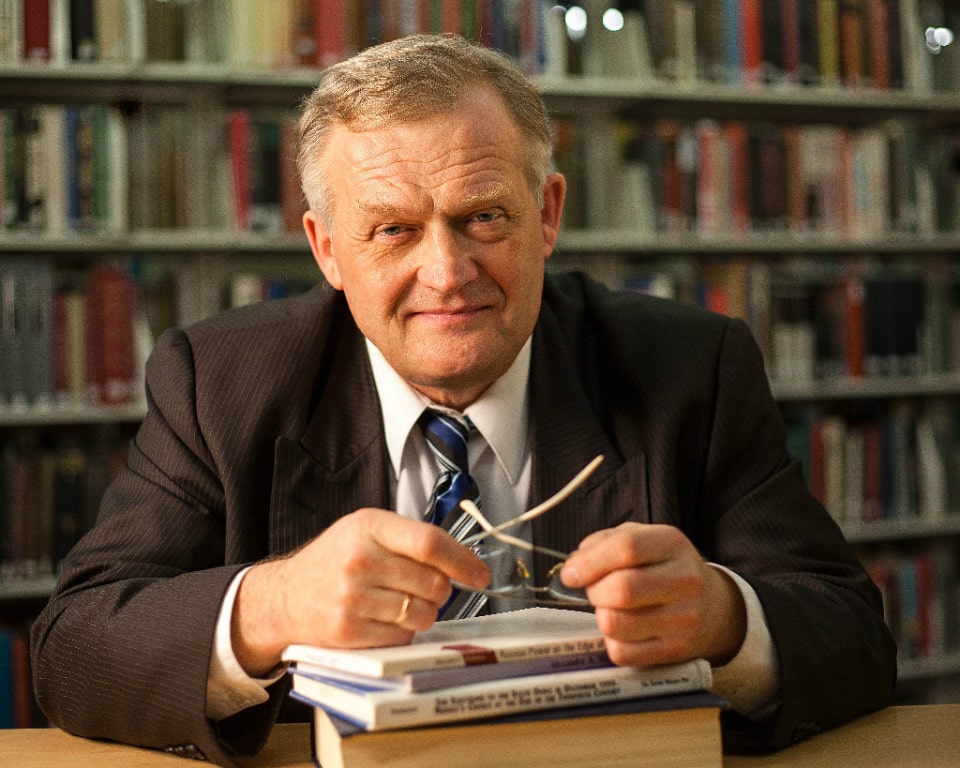
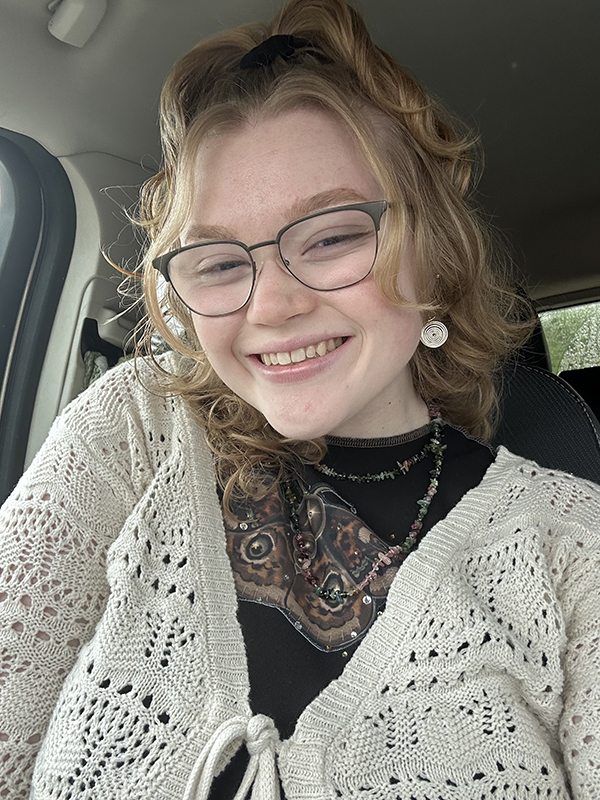
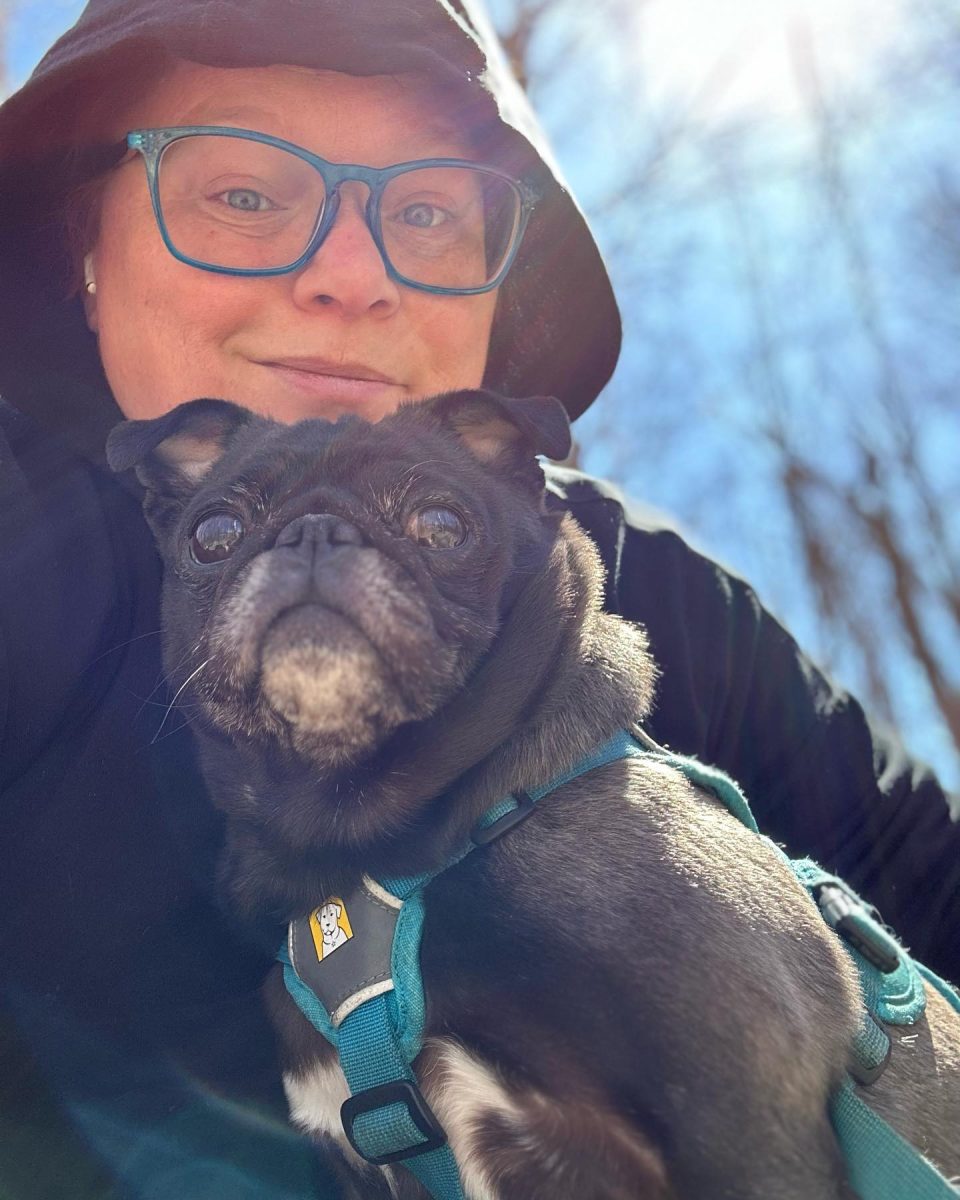
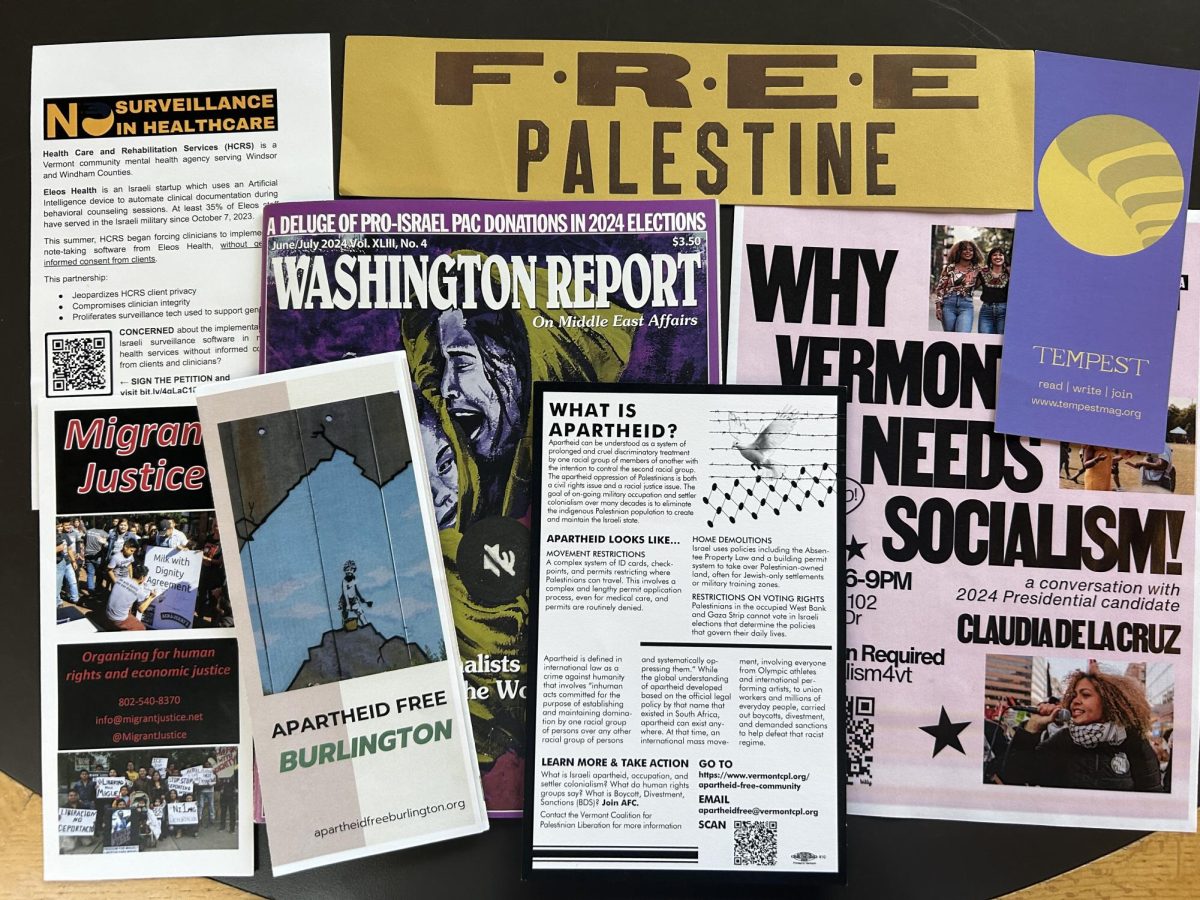
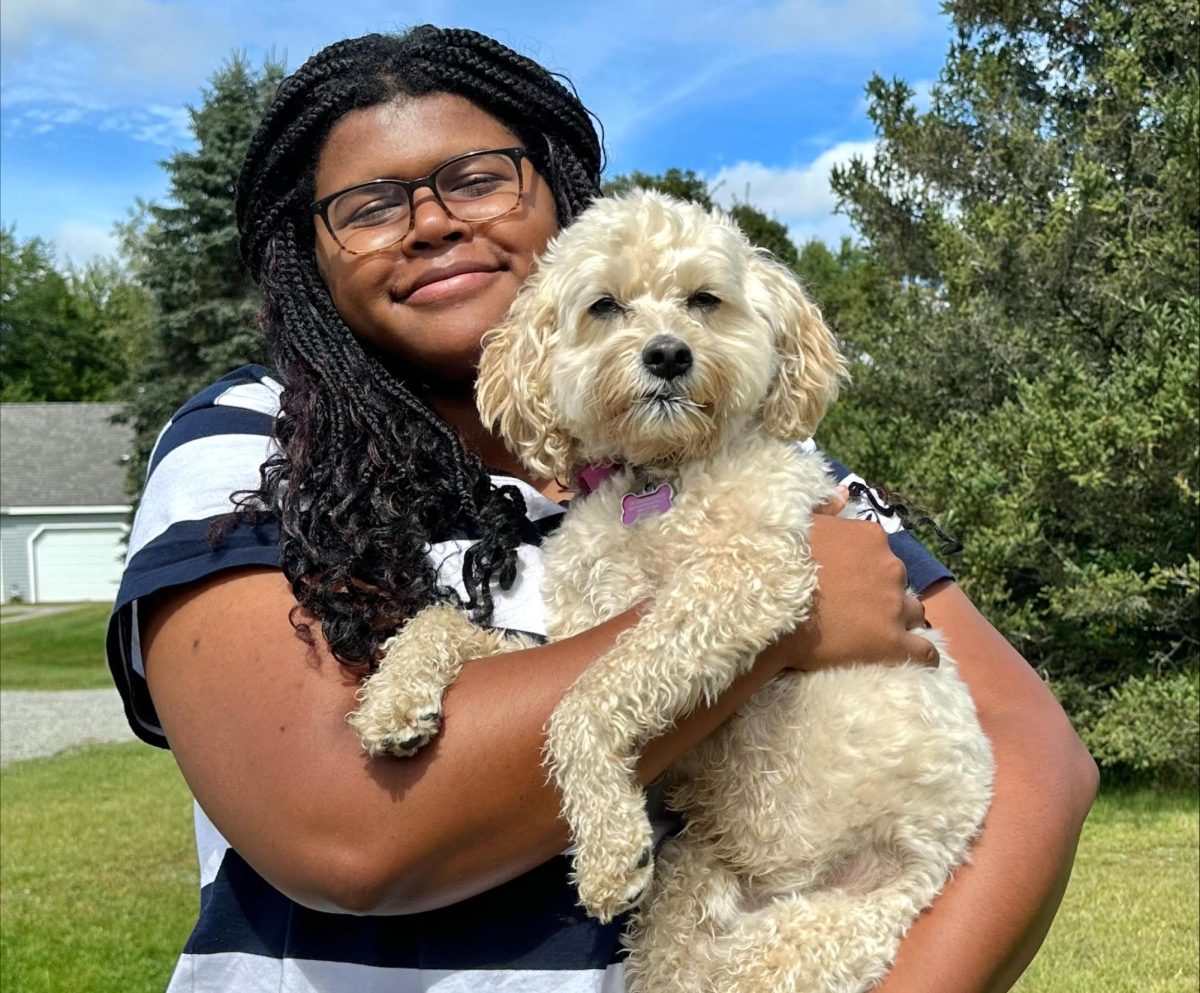
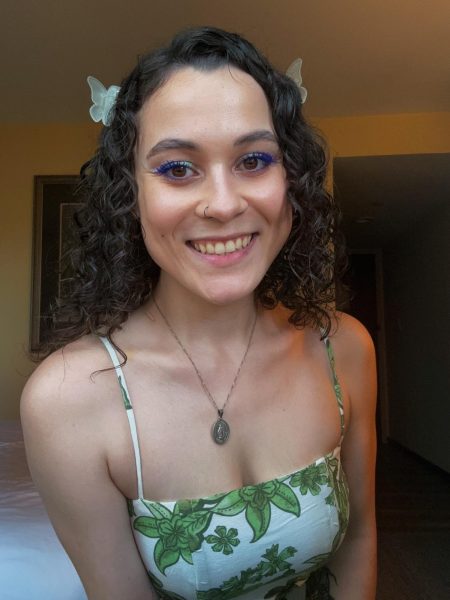
griffin bell III • Oct 14, 2024 at 10:13 pm
My son has taken a number of classes with the good professor. A great asset to the school; blessed to have him. Kudos to Ms. Parchment for taking the interview and publishing it.
Adrianne Hutchin • Oct 1, 2024 at 10:08 am
My time spent learning from Professor Strokanov has forever changed the way that I see the world and everything in it. I have learned to question everything and look at all the different perspectives and possible sides to an issue. I now look for more than just one or two sources for my information and then I think things over more critically and objectively before I make my decisions. I learned so much more from this man than I could have ever imagined. They are lessons I will carry with me always.